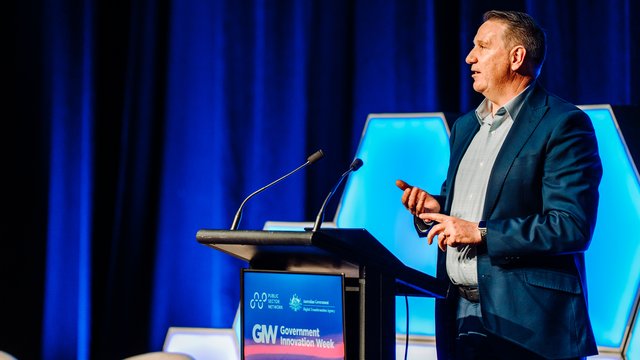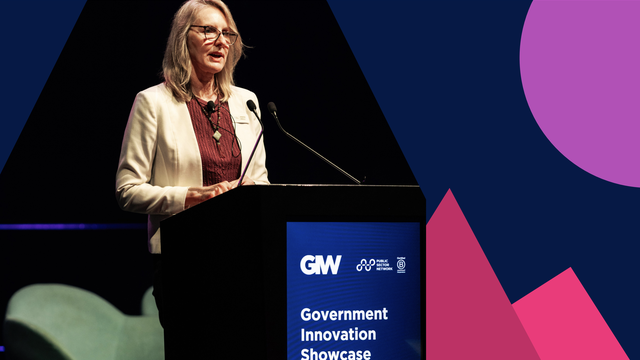
Standing on the shoulders of powerful women
Women make up half the population, or sometimes maybe even more, yet even in our modern world there are still some doorways that are not open to them, particularly in positions of leadership. Nonetheless, Nosa Ero-Brown, the Chief Talent Officer for the Ontario Public Service, who is responsible for policies, strategies and programs that enable a healthy, inclusive anti-racist public space, says that she stands on the shoulders of women who refused to let the status quo define who they are. These are women who shatter the glass ceiling and refuse to stay in the box that was built for them.
One such woman is The Honourable Lena Metlege Diab, a Member of Parliament for Halifax West in the House of Commons, Canada. Though she was only elected to her current role in September 2021, she served eight years in the Nova Scotia Legislature including as a cabinet minister. But more importantly, as a lawyer in her previous career and in politics, she blazed many trails. In Nova Scotia, she was the first female Attorney General and the first female Minister of Justice. In 2021 she nearly ran for Premier of the province but instead ran and won a seat in the federal parliament and made history as the first female representative for Halifax West, though there still has never been a female Premier in Nova Scotia. She was able to achieve all this, because she too is standing on the shoulders of women who have come before her, and because of the unshakable belief that her mother and father had in what she could accomplish. As a child she learned to be independent, learned the power of education and recognized the importance of self-sufficiency as a girl growing up in Canada. Other girls of my age were not raised in the same way and I recognize my privilege.
Nosa Ero-Brown says that although she is not a member of parliament, she nonetheless works in the public service and has the added complication of being a black Canadian woman of Nigerian descent, but has the support of a village of powerful black women. Not only are her mother and grandmother such women, but so is the head of the Ontario public service and many others. This is important background in the context of women in leadership.
Getting to positions of power is difficult
Lena Metlege Diab says that even after eight years in provincial government, getting to federal parliament was gruelling. She worked her tail off to win a seat and even to get the nomination. But of greater concern was that as a woman of Lebanese descent, she encountered an uptick in online vitriol. She had never experienced that previously, but she earned the trust of the people. Though even now as a member of parliament, she has challenges as the only woman amongst 10 other men representing Nova Scotia. The barriers sometimes feel insurmountable, but what she know for sure is that you can do it too.
"If any women are considering running for any political office, I urge you to give it very serious consideration. It’s not easy. It requires people who love and believe in you and are in your corner, but you can do it, and Canada needs you and your capabilities to step up and take your place.” The Honourable Lena Metlege Diab, Member of Parliament, House of Commons Canada
On her first day in the role, to show how important it is for women to take their place in parliament, she wore a t-shirt that said: A woman’s place is in the house… of Commons. It’s really important because we need more women in public life, and in leadership roles. It doesn’t have to be in politics. It can be in other roles like corporate boards, not-for-profits, universities, colleges, unions, faith organizations, communities, school advisory councils or anything else. We need to be at every table where decisions are made, not just to tick a box on a checklist, but to ensure that the best, most informed and most effective decisions get made. Even through all the challenges and barriers, when women are at the table, better and more diverse decisions are made.
Nosa Ero-Brown says that part of her role and part of the reason why it is so important for women to be at the table where decisions are made, is to improve opportunities and representation for women and under-represented groups, including black, indigenous and racialized groups. This is especially the case in light of the pandemic, and currently there is a bit of a racial and equity reckoning with employers now committing to action on diversity, equity and inclusion in ways they didn’t before, so having the voices of women involved is more important than ever. Despite the reckoning though, there are still systemic barriers in the workplace that impact the trajectories of certain people, especially women, and especially black women. At the same time, there is a shift and a choice, and therefore also an opportunity.
“We as women may not be able to change everything, but we need to do something to push back hard on the barriers and to ensure that our voices are heard loud and clear.” Nosa Ero-Brown, Chief Talent Officer, Ontario Public Service
This is particularly the case when it comes to tough actions on pay gaps, promotions, productivity and systemic issues.
Tips and ideas for change
When is the right time to step up? Lena Metlege Diab says that if you were to sit and think about when is the right time to have a baby, many of us may never find the right time for it. We may never be ready. But sometimes you just need to take the plunge and hopefully it turns out good on the other side. The same is true for women’s advocacy, whether it’s politics or leadership roles, particularly if we have a drive for it. The biggest inhibiting factor is self-belief. As a woman, when you speak out, you get called out. But the truth is that we have the same right to speak out as any man. I want you to hear my voice. Often there is safety in numbers and thus it is important for women to step up. Currently, the Canadian federal parliament has set a record for the number women elected to the House of Commons, but it is still only 30%. To break through and increase the numbers – in parliament and in other roles – we have to cultivate faith in ourselves and step forward when the moment presents itself even if it is not the perfect moment. We also have to support other women when they step up.
Similarly, Nosa Ero-Brown says there needs to be ally-ship. There is tension in the use of that term because not everyone understands it, but essentially it is about operating in solidarity with an under-represented group. In other words, men or women supporting other women. But really, the more fundamental question is how do we create an inclusive workplace where everyone, especially women, belong, thrive and reach their potential? At the Ontario Public Service, this question is split into two elements: from an individual and a systemic perspective. Individually, women can do three things:
- Start with yourself – It is about making time to pause. Assumptions lead to micro-aggressions, so self-reflection is critical and as women, we’re good at that.
- Build relationships – Particularly with people that are outside of your social or work context. We need to not forget about humanity and to show it in the workplace. It is about having EQ, and we as women always show up with that. As others have said, people may forget what you said but they won’t forget how you made them feel. And feeling helps with wellbeing and mental health.
- Be deliberate about inclusion – We have to bring others to the decision table and into meetings and projects. We have to mentor, sponsor and promote others, especially women, and each other. There are barriers to be sure, but we have to be conscious about this in everything we do.
Lena Metlege Diab says that being deliberate is not just about gender parity, which is important, but it is also about using a gender based analysis or lens on every policy that is designed, and any time a decision is taken. It is also about increasing women’s representation on corporate boards, and having an open and merit based selection process to remove barriers that prevent women from participating in politics. Changes have been made over many decades, but we can’t afford to wait on the continued glacial progress.
For women these days there are many barriers, from the toxicity of public life to the inflexibility of some of our work institutions, and even access to childcare. But that doesn’t mean women should give up. I am the only Arab woman in the current parliament, and I often speak to Arab groups to give them hope. It is up to the current generation to inspire the next. If we are going to reshape our politics, to open the door to more women leaders, then we have to listen to women, and we have to inspire them. That is what I try to do.
That is what everyone should try to do, and Nosa Ero-Brown says that inspiring the next generation of women is very important because you can’t be what you don’t see. We need to see more representation and we need see more women succeed. It is therefore up to us to influence and encourage leaders to drive change. This requires trust and confidence, and in this systemic regard, in the Ontario Public Service, we focus our effort in three key areas:
- Commitment to address systemic changes – It’s not ok to just make a quick change. The action has to continue and there needs to be long-term commitment. For example, we have set up 10 concrete actions to address the root causes of discrimination and harassment in a proactive way. We’ve also made a commitment to support under-represented groups to advance their careers, recognizing there is no one-size-fits-all approach to growth.
- Focus on accessibility – This is about accessibility for people with disabilities, but also about training resources and policies to remove barriers for everyone with any kind of issue.
- Senior leadership diversification – People need to see diversification in action, and this means a commitment to increase the representation of under-represented groups in senior leadership positions.
These three areas are bold but deliberate, but none of this is just for women and just for those who support them. To be truly successful, everyone has a role to play. Be a better ally, call for greater change, look at your business plans and HR strategies, have performance conversations and continue to make the changes that we all want to see.
Featured speakers:
- The Honourable Lena Metlege Diab, Member of Parliament, House of Commons Canada
- Nosa Ero-Brown, Chief Talent Officer, Ontario Public Service






























